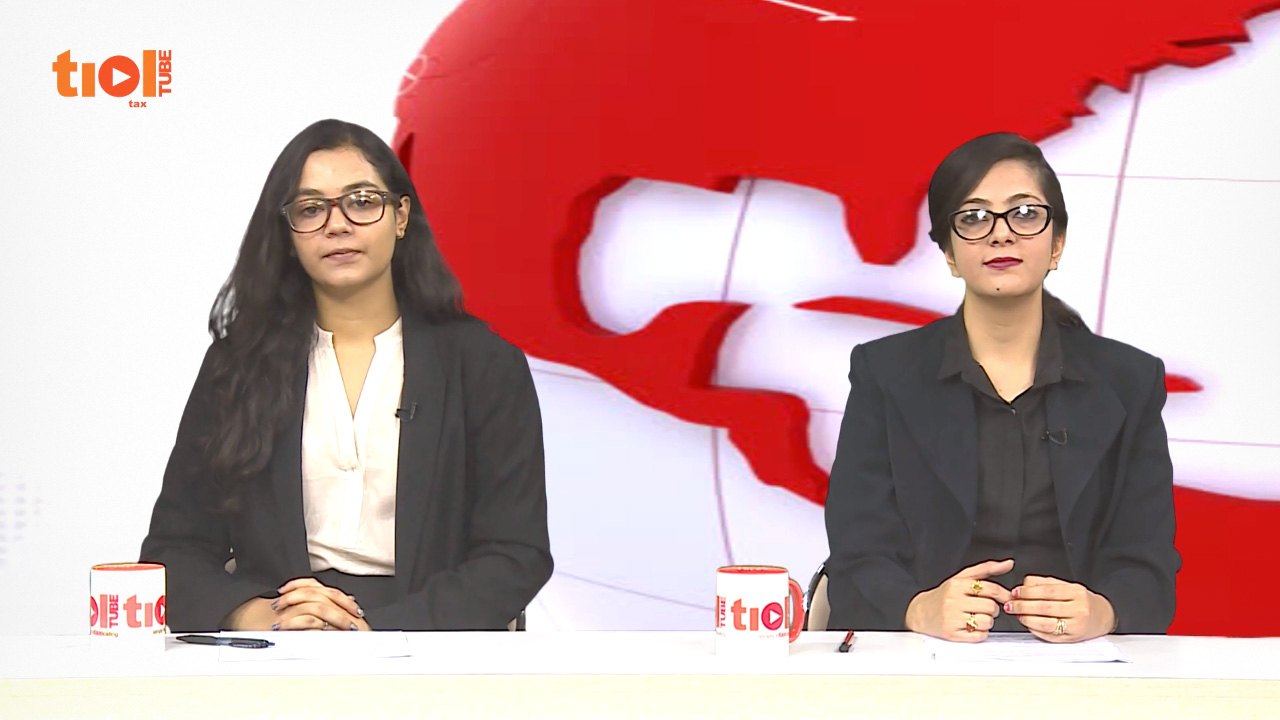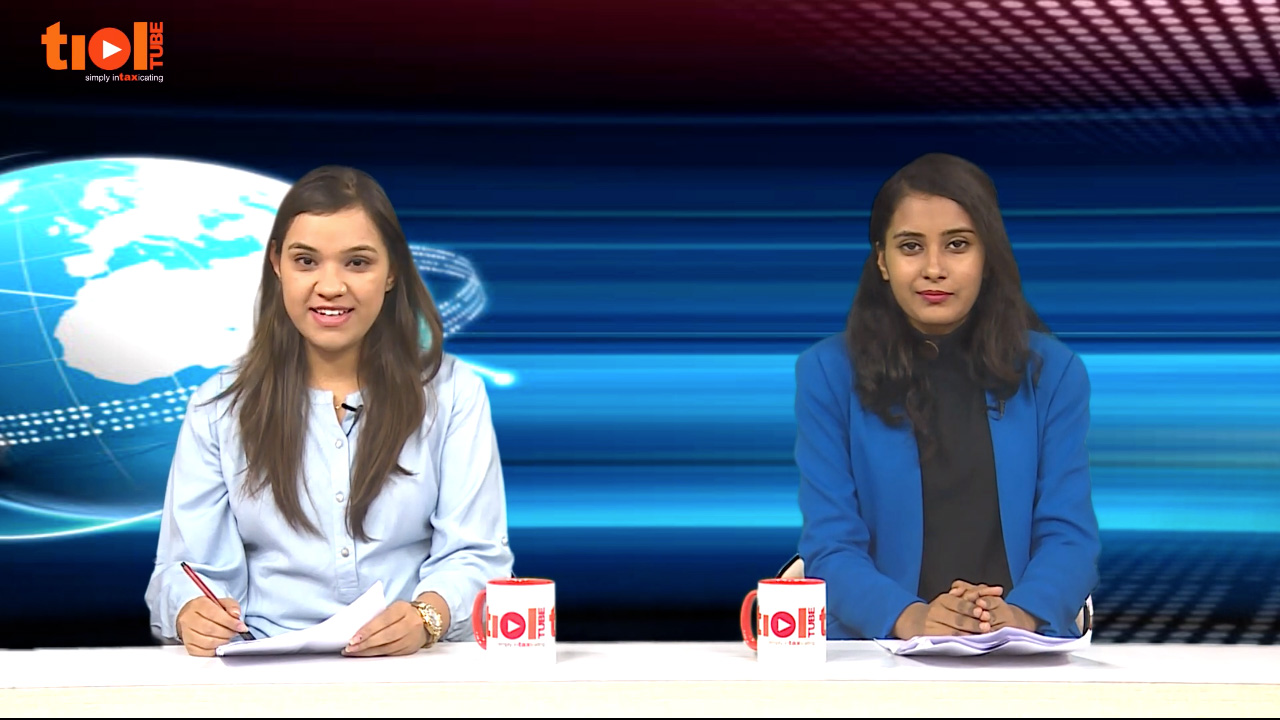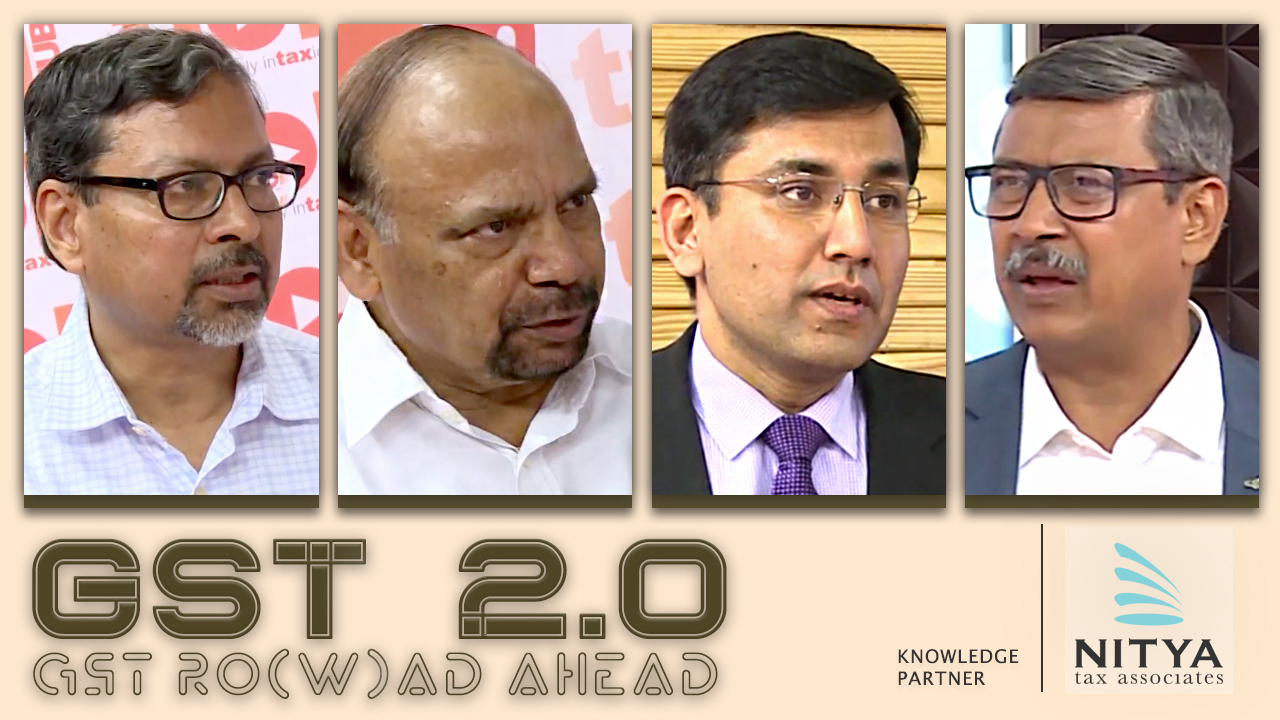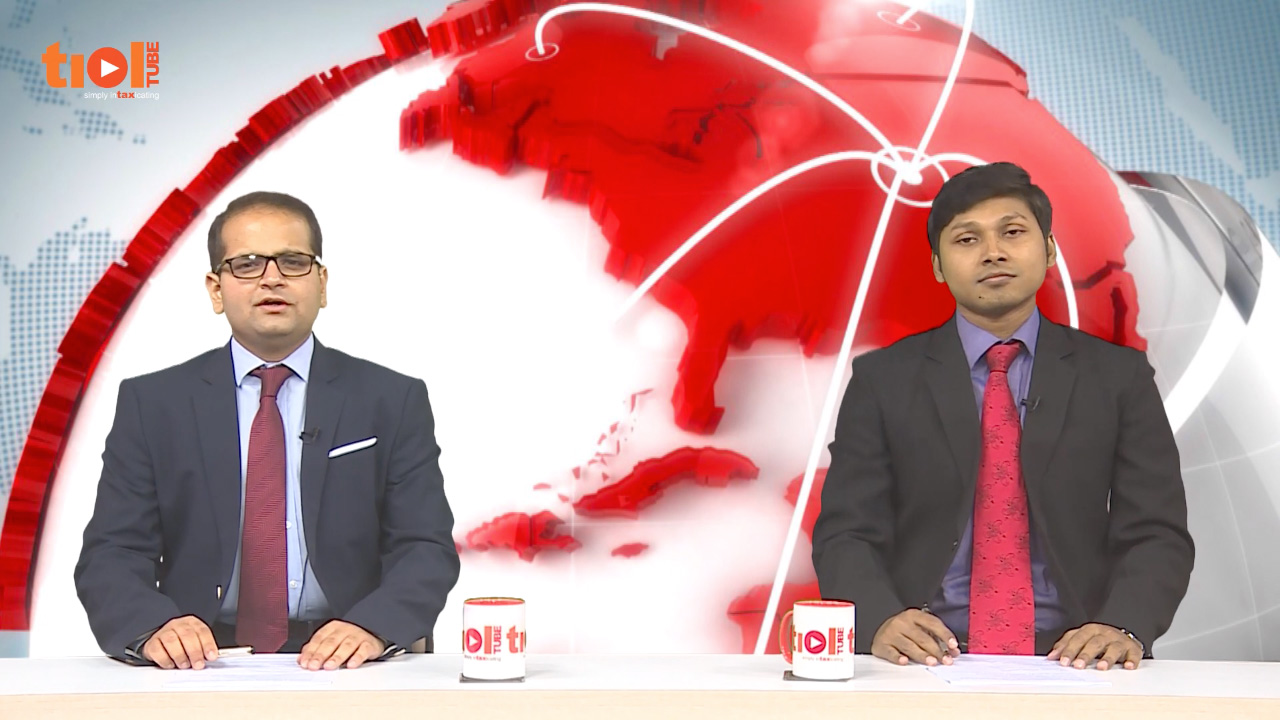|
SERVICE TAX
2019-TIOL-1660-CESTAT-HYD
Viswa Shipping Services Vs CCE, C & ST
ST - Rule 2(l) of CCR, 2004 - Taxable service rendered by the appellant is Custom House Agent service and renting of godowns and stevedoring are separate services which are provided to their clients - Since the appellant themselves are treating these as reimbursable expenses incurred by them on behalf of their clients, such a service cannot become an input service for the Custom House Agent services provided by the appellant - moreover, appellant they have not included the value of these services in their output services - since the appellant had taken credit in violation of the CCR with the intent to evade payment of service tax, extended period of limitation is correctly invoked - demand is sustainable along with interest - penalty is rightly imposed - impugned order is upheld and the appeal is rejected: CESTAT [para 5, 7]
-Appeal rejected : HYDERABAD CESTAT
Indian Immunologicals Ltd Vs CC, CE & ST
ST - Assessee is a wholly owned subsidiary of National Dairy Development Board engaged in manufacture of veterinary vaccines and animal health products and also vaccines for human health - In order to capture foreign markets, they engaged services of consultants in those countries to help them to comply with the statutory requirements related to the products marketing there - On receiving such consultancy, assessee paid consultancy charges to them - Revenue was of the view that the payment made by assessee to the consultants situated abroad during the period 1.7.2003 to 31.03.2008 is liable to be taxed under reverse charge mechanism - Prior to 18.04.2006, the law is now clearly settled, that no service tax liability arises on the assessee under reverse charge mechanism for the payments made to foreign entities who render services to assessee - Following the ratio of the law settled by judgment in case of Indian National Ship Owners’ Association - 2009-TIOL-150-HC-MUM-ST, service tax liability, interest thereof and penalties imposed for payments made to foreign consultants prior to 18.04.2006 is not sustainable - As regards the service tax liability post 18.04.2006, the provisions of Section 66A of FA, 1994 are very clear and unambiguous, post 18.04.2006 the service tax liability needs to be discharged by assessee as per the provisions of law - Assessee had discharged tax liability and has also discharged the interest on 14.01.2019 - The tax confirmation along with interest is upheld - As regards the penalty, assessee being a Government undertaking, would have been under the bonafide impression that tax liability may not arise - It is also to be noted that during the period in question, the law was in a flux situation, inasmuch as various litigations were pending before various Courts and the matter was settled by High Court of Bombay and Apex Court in 2009 - On this point itself, assessee has made out a case for setting aside of the penalties: CESTAT
- Appeal disposed of: HYDERABAD CESTAT
CENTRAL EXCISE
2019-TIOL-1659-CESTAT-ALL
Veira Electronics Pvt Ltd Vs CC, CE & ST
CX - DGCEI case - Revenue entertained a view that the units were engaged in clandestinely procuring raw material from the manufacturing and trading units run by the other family members and have actually crossed the exemption limit of Rs.1.50 Crores - Revenue's entire case is based upon the retracted statements of Mr. Bhatia deposing that the components, after clearance, were sent to the factory of M/s.Viera Electronics - There is no evidence produced by the Revenue showing transportation of the said components to the factory premises of M/s.Viera Electronics - In fact, in the show cause notice, which is the foundation of the proceedings, it is observed that the left out quantity of unaccounted PCBs out of the total quantity imported by the firms of Bhatias must have been utilized by M/s.Viera Electronics Pvt.Ltd.; that the unpopulated PCBs imported by Bhatias had been utilized by M/s. Westway Electronics Ltd. and whatever had been left, which M/s. Westway Electronics Ltd. could not utilize, was uitlised by M/s.Viera Electronics Pvt.Ltd. - The said allegations are in the realm of presumptions and cannot be confirmed in the absence of any evidence of transportation of the goods to the appellant's factory and their actual utilization in the manufacture of their final product - Even the findings of Commissioner deemingly admits that there is no evidence - Notably, the same show cause notice, based upon the same set of allegations and evidences, issued against M/s.Conic Electronics, stands dropped by the Principal Commissioner of Central Excise, Delhi - There is no extra evidence in the present case and the "Part-A" having been dropped by Principal Commissioner, the "Part-B" of show cause notice is also required to be vacated - impugned orders are required to be set aside - appeals allowed: CESTAT [para 13, 16, 18
CX - It is well settled law and does not require the support of the precedent decisions that the allegations of clandestine activities are required to be established beyond doubt, being quasi-judicial proceedings,s by production of positive and tangible evidences - Mere doubts or allegations made on the frivolous grounds and on the unfounded basis of belief by the officer, cannot be adopted to establish the same. Revenue itself is doubting the divergence of goods to the appellant's factory when the adjudicating authority is using the expressions that the appellants "might have" used the same in the manufacture of Colour TVs - The distance between "might have" and "must have" is required to be covered by production of positive evidences - The demand cannot be upheld on the basis of surmises and conjectures: CESTAT [para 15]
-Appeals allowed : ALLAHABAD CESTAT
2019-TIOL-1658-CESTAT-KOL
Visuvius India Ltd Vs CCE
CX - Appellant is a manufacturer of various types of refractory materials which are used in lining the inside of blast furnace, converters etc. - In certain contracts, they have not only supplied the goods, but also carried out "Application Services" which involve the lining of the furnace with refractory materials - The dispute is only with reference to those contracts where the application services and the value of goods have been specified separately, even though the contract is composite - Case of the Revenue is that the value on which duty has been paid does not represent the true intrinsic value, since the total value has been split up into material value and service charges and the latter had been excluded from the assessable value for payment of duty - Lower Authority has taken the view that the entire contract value is to be considered for payment of Excise Duty - demand of Rs.53,89,920/- confirmed along with interest and penalty of an equal amount under Section 11AC of the Act - Period of dispute is June 2000 to December 2000 - Appeal to CESTAT.
Held: An identical dispute with reference to the appellant's factory situated at Vishakhapatnam was decided by the Bangalore Bench of Tribunal in which the Tribunal held that the application charges collected separately in service contracts is not includable in the assessable value - following the same, there is no justification for payment of differential duty by including the application charges - impugned order set aside and appeal allowed: CESTAT [para 7 to 9]
-Appeal allowed : KOLKATA CESTAT
2019-TIOL-1657-CESTAT-MAD
Volex Interconnect India Pvt Ltd Vs CGST & CE
CX - CENVAT - For the period from January 2010 to August 2011, credit has been disallowed to the manufacturing unit on the ground that credit has been availed on the invoices issued on ISD (name and address of the Head Office); that certain services were not included in the ISD registration during the disputed period and required endorsement for including such services were not obtained by the appellant; that the entire credit has been distributed to the manufacturing unit and that the ISD registered Head Office has not distributed on pro-rata basis as required under Rule 7 of CCR, 2004.
Held: In WABCO India Ltd. - 2018-TIOL-2427-CESTAT-MAD , the Tribunal has relied upon the decision (accepted by the Board) of the High Court of Gujarat in the case of Dashion Ltd. - 2016-TIOL-111-HC-AHM-ST which held that even if Head Office did not obtain ISD registration, the credit distributed cannot be denied - Further, period involved is prior to 1.4.2012 and the requirement of pro-rata distribution was introduced with the amendment brought forth with effect from 1.4.2012, therefore, the credit availed is legal and proper - disallowance of credit for the period from January 2010 to August 2011 for an amount of Rs.3,74,77,389/, therefore, cannot be sustained and requires to be set aside - Appeal partly allowed with consequential relief: CESTAT [para 5.1]
CX - Appellant could not furnish the documents to the adjudicating authority on the strength of which they had taken credit - Since the appellant has reversed the credit more than three years before issuance of the show cause notice, penalty imposed is unjustified and is required to be set aside: CESTAT [para 5]
-Appeal partly allowed : CHENNAI CESTAT
2019-TIOL-1656-CESTAT-MAD
Wabco Tvs India Ltd Vs CGST & CE
CX - For any manufacturer, R & D activity is indispensable part of the manufacturing activity - The manufacturer has to improve their finished products and also seek out new methods or process for manufacturing final product so as to make it commercially feasible and economically viable, and to improve the quality and marketability of the finished products, therefore, the contention of the department that R & D activity is not connected to manufacturing activity in any manner is not tenable - Credit is available on inputs and capital goods used in R & D activity within the factory premises - disallowance of credit is unjustified - impugned order is set aside and appeals are allowed with consequential reliefs: CESTAT [para 5, 6]
-Appeals allowed : CHENNAI CESTAT 2019-TIOL-1643-CESTAT-DEL
Ideal Coating Industries Vs CCE & CGST
CX - The assessee is covered by Investment Promotion Schemes of Rajasthan Government - In terms of various schemes of Rajasthan Government, assessee is required to discharge their VAT liability by making payment of the same - Out of such VAT credited to Government, a certain portion is disbursed back to them in the form of subsidies - Such disbursement happens in the form of VAT 37 B, challan which can be utilized in subsequent periods to discharge VAT liability - The crux of dispute is whether such subsidy amounts are required to be included in assessable value of goods manufactured by assessee in terms of Section 4 of Central Excise Act - As per the concept of transaction value outlined in Section 4 w.e.f. 01/07/2000, any sales tax/VAT actually paid can be deducted from the transaction value for payment of excise duty - Revenue has taken the view that payment of VAT using 37B Challans cannot be considered as actual payment of VAT - For the initial period, the assessee is required to remit the VAT recovered by them at the time of sale of goods manufactured - A part of such VAT is given back to them in the form of subsidy in Challan 37 B - Such Challans are as good as cash but can be used only for payment of VAT in the subsequent period - In terms of scheme of Government of Rajasthan payment of VAT using such Challan are considered legal payments of tax - Revenue is not correct in taking the view that VAT liability discharged by utilizing such subsidy challans cannot be taken as VAT actually paid - By following the decision of Tribunal in Welspun Corporation Ltd. - 2017-TIOL-1287-CESTAT-MUM, there is no justification for inclusion in the assessable value, the VAT amounts paid by the assessee using VAT 37B Challans: CESTAT
- Appeals allowed: DELHI CESTAT
CX - The Revenue is seeking to allege that assessee and M/s. Tubas are related person and that in such circumstances the price of goods cleared to independent buyers at the time of nearest to the clearance to M/s. Tubas should be adopted as per Rule 11 of CER, 2000 - It is apparent that only the specified persons are the qualified to be relative - In the instant case, while the assessee is a proprietorship concern and M/s. Tubas is a Private Limited company - The Section 6 of Companies Act, 1956 would not cover such a situation - In these circumstances, the basic charge in SCN fails and thus, the demand made on the basis of this charge cannot be sustained - Moreover, it is seen that even if two are held to be related, in terms of decision of Apex Court in case of SACI Allied Products Limited - 2005-TIOL-73-SC-CX-LB, the value to be adopted should be of the goods cleared to same class of buyers - In the instant case, M/s. Tubas is buying substantial quantity of the total sale of the assessee - Since M/s. Tubas is buying 20/30% of the assessee's production, the price to any independent buyer of similar quantity only can be adopted under Rule 11 of CER, 2000 - On this count also, the demand dose not survive as the price adopted does not related to similar class of buyer: CESTAT
- Appeal allowed: AHMEDABAD CESTAT
CUSTOMS
MB Patil Constructions Ltd Vs CC
Cus - The assessee imported and cleared a Hot Mix Plant after claiming exemption under Notfn No 21/2002-Cus - The assessee undertook to use the plant exclusively for construction of NHAI road projects in Hyderabad, as per the conditions of the exemption Notfn - Upon investigation, it was found that just after the import, the hot mix plant was directly sent to, installed and used at some location in Pune - SCN was issued proposing to deny the benefit of the exemption Notfn & proposed duty demand with interest for recovery of such benefit availed - The SCN also imposed equivalent amount of penalty and proposed to confiscate the imported machine, with option of redemption fine being given - On adjudication, the proposals in the SCN were confirmed with personal penalty being imposed on the MD of the assessee-company - Hence the present appeals were filed challenging such order.
Held: Perusal of Letter of Acceptance dated 29.06.2005 issued by the NHAI clarifies that the contract was for the balance work of 4-laning of the Nagpur-Hyderabad & the Hyderabad-Bangalore section of NH-7 in the State of Andhra Pradesh - The assessee admitted that upon clearance of the goods from Mumbai Port, the same were transferred to Pune, though lorry receipts were issued for Hyderabad - The goods were then in fact used for execution of contracts awarded by the Pune Municipal Corporation - Considering that the assessee filed the bill of entry declaring that the goods were being used for the NH-7 project, the letter issued by the NHAI has no effect - Admittedly, the assessee contravened the provisions of the Notfn - Hence the exemption has correctly been denied by the adjudicating authority - Hence the orders in challenge do not warrant with: CESTAT
- Assessees' appeals dismissed: MUMBAI CESTAT |









